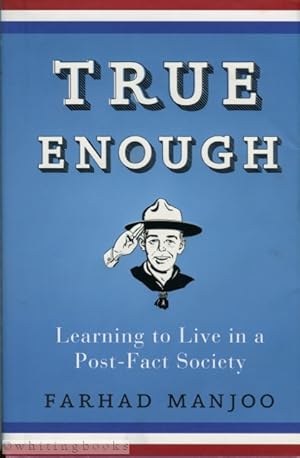Synopsis
True Enough Why do lies seem to linger so long in the cultural subconscious even after they've been thoroughly discredited? This title explores the controversies of national politics, foreign affairs, and business, explaining how Americans have begun to organize themselves into echo chambers that harbor different facts from those of the larger culture. Full description
Revue de presse
In 2005, Stephen Colbert catapulted the word truthiness the quality of an idea feeling true without any backup evidence into the public consciousness. Salon blogger Manjoo expands upon this concept in his perceptive analysis of the status of truth in the digital age, critiquing a Rashomon–like world in which competing versions of truth vie for our attention. Driven by research and study, the book relies on abstract psychological and sociological concepts, such as selective exposure and peripheral processing, though these are fleshed out with examples from American history, politics and media. For example, Manjoo demonstrates how the Swift Boat Veterans′ negative campaign derailed John Kerry′s 2004 presidential run. He also points out that the sheer quantity of 9/11 imagery has engendered more conspiracy theories, not fewer demonstrating, he says, the disjunction between truth and proof. Manjoo rounds out his analysis by examining the workings of partisan news realities, and he points out that the first casualty in these truth wars is a basic human and civic need: trust. Though several of the author′s ideas are repetitiously threaded through his narrative, Manjoo has produced an engaging, illustrative look at the dangers of living in an oversaturated media world. (Mar.) ( Publishers Weekly, January 28, 2008)
"...Manjoo has produced an engaging, illustrative look at the dangers of living in an oversaturated media world." ( Publishers Weekly, January 28, 2008)
Les informations fournies dans la section « A propos du livre » peuvent faire référence à une autre édition de ce titre.


